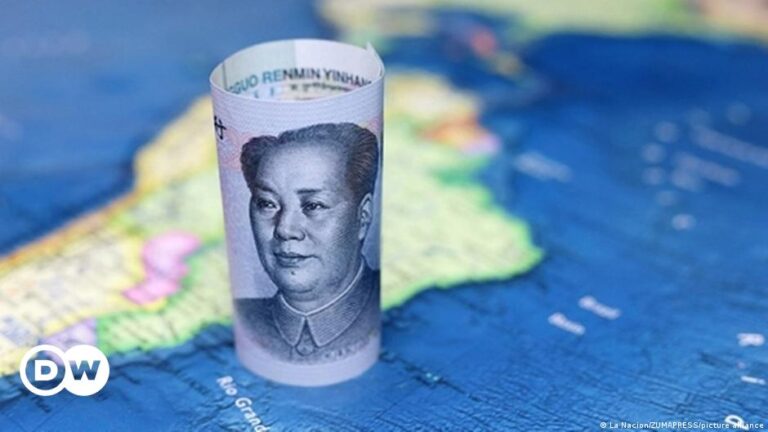This came as a shock to Guatemalan exporters, as media reports said China had recently banned the import of Guatemalan coffee and other goods.
No official explanation was given, but Guatemala’s President Bernardo Arevalo speculated that it might be related to his country’s ties with Taiwan. “We will deal with it,” Arevalo said.
Apart from Paraguay, Guatemala is currently the only Latin American country with diplomatic ties to Taiwan. Beijing considers the island nation part of the People’s Republic of China. In recent years, Honduras and Nicaragua have turned their backs on Taiwan and sought rapprochement with Beijing.
Several minor conflicts in Latin America
The blockade of Guatemalan goods is one of several smaller conflicts that are beginning to cast a shadow over China’s path in Latin America, which has long been focused on growth and expansion.
But those conflicts are different in nature, Vladimir Rubinski, associate professor at the political science department at Icesi University in Cali, Colombia, told DW.
“In this case, China is clearly using something as leverage, not so much with Guatemala, but with Taiwan,” he said.
In Costa Rica, the government asked one of the executives of state energy supplier ICE to leave the company after about 70 senior employees attended a party hosted by Chinese tech giant Huawei.
Union members were stunned and ICE President Mario Acuña called for greater caution in the face of “contract proceedings and various litigation” that are ongoing at the same time. He said the actions of the agents involved could damage “ICE’s image and reputation.”
Message from the Costa Rican President to China
Relations between Costa Rica and Huawei have been strained since President Rodrigo Chavez established the Budapest Convention on Combating Cybercrime.China established this treaty, which it is not a signatory to, as the benchmark for its economic engagement in Costa Rica.
Huawei’s CEO for Latin America later criticized Costa Rica’s response as “unprofessional.” “This is a message to Beijing: China has to play by the rules, too,” Rubinsky told DW.
The Budapest Convention is the first international agreement on crimes committed on the Internet, focusing on copyright infringement, computer-related fraud, and breaches of network security.
There are other examples of economic conflict between China and Latin American countries, including the import of cheap steel from China, which has put enormous pressure on Latin American steel producers and stoked anger.
Meanwhile, in Brazil, cheap textiles from China pose a serious threat to fashion boutiques, and accusations that Chinese companies are damaging the environment with their operations have also sparked debate.
Brazil imposes tariffs on Chinese imports
Brazil is now fighting back by imposing a 20% tax on cheap Chinese imports, which applies to goods under $50 (46 euros) bought through international shopping sites.
Brazilian media said Chinese online retail platform AliExpress was “surprised” by the decision, as the tax will hit mostly the poorest people and discourage foreign investment in the country.
In the textile industry, there is considerable anger directed at Chinese suppliers because conglomerates like Shein are driving thousands of local companies out of the market because they do not produce their products under the same conditions and in the same general framework as Brazilian smaller companies. At the grassroots level, there is a growing feeling that Chinese strategies are destroying rather than benefiting local trade structures.
Who benefits from China-Latin America trade?
“Recently, the challenges and risks associated with China’s leading position in many economic and technological fields have become increasingly evident in Latin America,” Christian Hauser, a Latin America expert at the Graubünden University of Applied Sciences in Switzerland, told DW.
“There is a growing realization in various Latin American societies that it is primarily Beijing that benefits from the region’s economic ties with China, so current criticism of China’s trade practices may become even more salient,” Hauser said.
Plus, foreign policy factors are at play: “Latin American countries are increasingly caught in the crossfire of the geopolitical conflict between the United States and China,” Hauser said.
“Against this backdrop, the current tensions between China and Central American countries such as Guatemala and Costa Rica are probably just the beginning of a more contentious relationship in the future,” he said.
Only China’s relationship with Nicaragua appears to be unscathed, as the country’s dictatorial government has banned countless NGOs, including many that advocate for environmental protection.
According to reports in Nicaraguan media critical of the government, Chinese companies operating in the country have won 13 mining concessions in just over six months.
This article was originally written in German.

